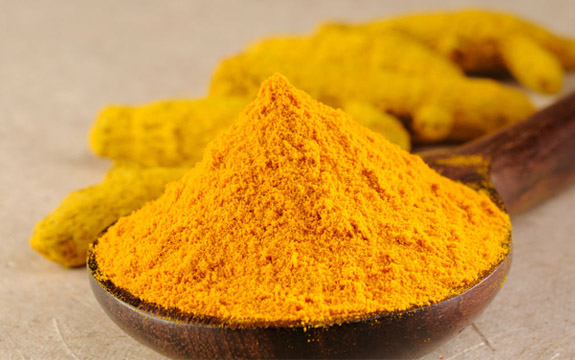The mood and cognitive effects of curcumin from turmeric

In Summary
- Analysis for The Conversation by Andrew Scholey, Professor and Director of the Centre for Human Psychopharmacology, Swinburne University of Technology and Katherine Cox, PhD Candidate, Centre for Human Psychopharmacology, Swinburne University of Technology
Curcumin is the component of turmeric (Curcuma longa) that gives the spice its bright yellow colour. It is one of more than 5,000 flavonoids, a group of plant-based compounds thought to contribute to the health benefits of fruit and vegetables.
The purported medical effects of curcumin have a long history, going back at least to the 18th century. In 1937, a paper in the Lancet medical journal described successful case studies using curcumin in the treatment of inflamed gall bladders.
Around 150 curcumin studies are under way to investigate the effects of curcumin (alone or in combination with other drugs) on cancer, heart disease, diabetes and dementia. While any meaningful clinical effects are far from proven, at least the trials have a scientific foundation.
There are already some promising results from studies of curcumin in healthy people. For example, one study in healthy middle-aged volunteers showed that taking 80mg of curcumin a day for four weeks reduced markers of inflammation and oxidative stress. These are implicated in a number of disease processes, including those observed in cardiovascular disorders, diabetes and dementia, among others.
While half a tablespoon or so of turmeric might contain 80mg of curcumin, gaining these health benefits is not as simple as ingesting this amount of the spice every day. First, there is large variability in the levels of curcumin in commercial turmeric. Second, native turmeric has low bioavailability. This means that, under normal circumstances, little is absorbed from the gut into the body.
Various methods have been used to try to increase bioavailability. The preparation used in the study above is lipid-conjugated. This means that the curcumin molecules are bound to lipids (molecules which make up cell membranes), allowing the curcumin to pass through tissue much more readily. This makes it up to 60 times more bioavailable.
My lab is researching the cognitive and mood effects of a range of bioactive nutrients. Unlike many pharmaceuticals, which are often aimed at single targets, these may affect multiple biological processes involved in cognitive decline and dementia.
Compounds that increase the activity of certain neurotransmitters (chemical signalling molecules) or the delivery of the basic energy substrates (glucose and oxygen) to the brain have the potential to improve aspects of cognitive function. Those that, like curcumin, decrease inflammation and oxidative stress may have longer-term benefits for the ageing brain.
Indeed, there is converging evidence from both human population and animal studies that curcumin may help prevent age-related cognitive decline.
One study of around 1,000 Singaporeans found that those who ate more curry had higher scores on a broad measure of cognitive ability.
While such findings need to be interpreted with caution, they suggest that some component of curry may contribute to the effect. The possible role of curcumin as the key ingredient is supported by numerous animal and test tube studies which show that the compound possesses a host of properties, including many relevant to brain function.
Our placebo-controlled, double-blind study examined the effects of 80mg of the lipid-conjugated curcumin in a cohort of healthy older people. For full transparency, note the study was funded by a grant from the company that makes the extract – though it had no input into the design, interpretation or publication of the study.
We randomly allocated 60 participants (with mean age 69 years) to receive curcumin capsules (the intervention) or a matching placebo (a dummy). Neither group knew whether they were receiving curcumin or a placebo.
The volunteers underwent a training day to familiarise themselves with the computerised cognitive and mood tests. Then they undertook the tests before taking the capsule, then one and three hours after a single dose. They underwent testing at the same three time points following 28 days on curcumin or placebo.
We found that, compared with the placebo group, those in the curcumin group performed better on working memory tasks one hour after the first dose. This effect disappeared by the third hour, by which time blood levels of curcumin would have dropped.
After 28 days, the participants’ working memory was still significantly better than those in the placebo group. Those taking curcumin were also significantly less fatigued at the 28-day assessment.
Sitting computerised cognitive tests for any length of time has negative effects on mood for people in their 60s and 70s. It makes them significantly less alert, content and calm, while increasing stress and fatigue. These mood effects were significantly reduced in the curcumin group, suggesting they were protected to some degree against mental workload stress.
These are early results from a single trial but are encouraging and merit further exploration. We are conducting a replication study, which includes additional measures such as brain imaging to try to better understand the effects of curcumin as a cognitive and mood enhancer.
In the absence of effective new pharmaceutical interventions to treat cognitive decline, it is important that we continue to explore the potential for bioactives like curcumin, and other nutritional interventions, to improve mental function.
![]()
Written by Andrew Scholey, Professor and Director of the Centre for Human Psychopharmacology, Swinburne University of Technology and Katherine Cox, PhD Candidate, Centre for Human Psychopharmacology, Swinburne University of Technology. This article was originally published on The Conversation. Read the original article.

